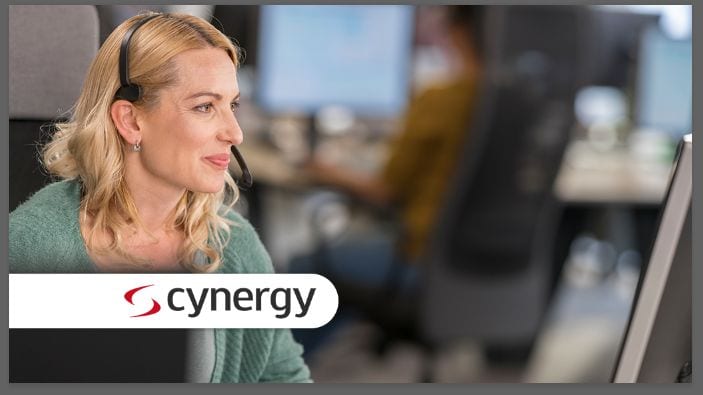Last week, DisruptionBanking headed to North London and the Tottenham Hotspur Stadium for the Digital Accountancy Show. The conference focused primarily on the new innovative technologies, apps and processes that are now available to the accountancy profession. We were particularly keen to attend the launch event of AREX Markets, a FinTech that has recently expanded into the UK. Founded in Finland in 2014, AREX aims to bridge capital market liquidity and SME cash flow needs through invoice financial solutions. AREX converts company invoices into a new type of asset class, Exchange Traded Receivables (ETRs), that are traded on the AREX marketplace and purchased by investors. This, they believe, could be the key to allowing SMEs cheap, accessible and flexible funding whilst, at the same time, offering market participants a highly diversified and liquid investment opportunity.
Good to be at the Spurs stadium to hear about innovation at the #digitalaccountancyshow pic.twitter.com/dHveB2LW2v
— Digital Startup (@digitalstartup5) September 1, 2021
Exploring these ideas in more detail, we spoke to Nikolai Hentsch, AREX’s co-founder and Chief Capital Officer (COO), about how the company came into being and what his vision for the future is.
Nikolai began by talking about the roots of AREX in the Finnish market. I pointed out to him that, over the last few years, we have seen lots of FinTech innovation springing out of the Nordic region, some of which have become household names. I asked him why he thought that might be – what the conditions in this region that are facilitating growth are, and which were attractive to Arex as they began to set up:
“Countries like Norway, Sweden and Finland are very different from a societal and cultural perspective. They’re really on the forefront of technology in the sense that they are always happy to try things out. If a product looks good and useful, companies are normally quite interested in giving it a go.
“There’s been a lot of success stories coming out of this region – notably Klarna. You have a lot of unicorn companies coming out of there, and I think this all feeds into people and society generally just being willing to try stuff. It seems to be a cultural thing, the way these countries operate.”
Why can't SMEs get cash direct from capital markets? @ArexMarkets launches in the UK today, leveraging their experience from Finland's mature electronic invoicing market. #digitalaccountancyshow pic.twitter.com/NG1mhQJYcu
— Digital Startup (@digitalstartup5) September 1, 2021
Having been established in 2014, AREX quickly sought the capital required to scale their product. It has always, according to Nikolai, been a company with big, pan-European ambitions. But when AREX was first starting out, it had no technology as such: the marketplace they envisaged was all being managed manually with spreadsheets and manpower. It was therefore crucial to secure the investments required to build the technology and algorithms that now drive the AREX market:
“In 2016, we did an early funding round and raised two million euros in a seed round. We got two of the strongest early stage venture capital funds, one based in London and one in Helsinki, to participate in this. Once we had that, we built a technology around the idea because it wasn’t scalable in its current form. We built the solution out for the Finnish market and then, about eighteen months ago, we revisited our aspiration to build a pan-European exchange.
“We want to see a market where, on one hand, companies from all over Europe can monetise their receivables and, on the other hand, investors can come to one place and allocate capital to this kind of asset class which in the past they haven’t really had access to – because it’s quite hard to scale.”
As Nikolai suggested, the main difficulty in terms of this market’s wider viability is the scale AREX is able to achieve. The average size of the invoices AREX deals with is just €5500, meaning it is hard for financial institutions – most of whom deal in the tens or even hundreds of millions – to build a portfolio that is meaningful. Even though this market can offer relatively high yields, it has so far proved difficult to translate this theoretical attractiveness into a practical asset that works on the scale that is needed. But Nikolai tells me that is exactly what AREX’s ultimate goal is: to build a marketplace where the world’s largest institutions, such as insurance companies and pension funds, can allocate tens of millions in capital investment “across sectors and across the risk spectrum.” Airto Vienola, AREX’s CEO, also noted that “so far we have dealt with 65,000 invoices in the Finnish market, totalling around 300 million euros”, something he believes demonstrates the scope of the company’s scalability.
It seemed to me that AREX is looking to build a kind of fixed income product, albeit one differing greatly in both size and returns to, for example, government bonds. Nikolai accepted that there are indeed similarities but also suggested that AREX’s asset has distinguishing characteristics:
“This asset does share some of the features of fixed income products. Ultimately an investor is buying an asset at a discount and then gets the face value at maturity. That very much looks like a zero coupon bond at the basic level. But at the same time we are not really offering a bond, because bonds are loans. We are offering the true purchase of an asset; the investors are actually buying the receivables. So it’s a bit different from bonds and the fixed income space.”
That said, Nikolai accepted that potential investors would be comparing this asset to others that are available, such as fixed income products. AREX is positioning itself in close relation to these spaces and aiming to emphasise the qualities this product offers. Nikolai says he pitches four main attributes:
“I pitch liquidity. The average duration of this product is thirty to forty days which is perfect for a fixed income guy. A duration of one year is considered to be short so, if you offer this product, it’s effectively a cash account. It’s at the very front end of the yield curve.
“I then pitch yields. We now live in a world where, in most European countries, interest rates are negative. If you can offer a product that generates returns of between three and five percent, that is exceptional for someone who is usually just trying to find a product yielding more than fifty basis points.
“This asset is also uncorrelated to the stock market. If the stock market goes down, say, twenty percent that is not really going to impact a company’s abilities in the next forty five days. So this product will be uncorrelated to the other stuff they have invested in.
“Finally, I emphasise how we have structured our platform. It’s really low maintenance and allows investors to build up a large portfolio, consisting of hundreds or thousands of smaller tickets, with minimal effort. The way we’ve built the infrastructure, all the investors need to do is set certain parameters: based on the level of risk they are prepared to take on, the sectors they wish to be exposed to, the maximum duration they are comfortable with, and others. We take all of these parameters and build a trading algorithm specific to that investor. Then when an invoice comes onto the platform, every single individualised trading bot analyses the characteristics of that specific invoice and, if it fits their specific strategy, puts in an automatic bid. A live auction happens every time an invoice comes onto the platform but it is done automatically; an invoice will usually get sold within ten seconds. So it’s very low maintenance.”
Airto also outlined some further benefits he sees their platform as offering. He sought to paint AREX as a better and cheaper alternative to the expensive and rigid factoring service offered by the banks:
“We only charge a one-time fixed fee; there any no subscription fees or anything like that. We want our clients to be able to use us as and when we are needed. If you take factoring as a service from a bank, you are tied in for the next couple of years and it is really difficult to get out of it. You also don’t get to choose which invoices you sell or whether you want to sell them at all. The banks simply mandate that you sell all of the invoices that they have selected because this is something they obviously want to control. With us, customers can select the invoices they want to sell and sell directly from their own financial management and accounting systems.”
The AltFi mkt has exploded, giving SMEs more options. Modern SMEs should realise new solutions are emerging to help them&shouldn’t be dismissed because they aren't traditional bank providers. Read more in @Real_Business https://t.co/ERfpkq6PgN
— AREX Markets (@ArexMarkets) August 13, 2021
It does certainly seem to be an attractive proposition. Factoring – when a business sells its receivables to a third-party investor (the factor) – is largely considered to be a relatively low-risk market because the asset is based on work that has already been completed. Yet at the same time, it is also already a €1.5 trillion a year industry in Europe, and can offer returns of multiple percent. In the current environment such returns, at a relatively low level of risk, are almost unheard of. For the SMEs selling their invoices on this market, AREX also offers cheap access to cash and greater balance sheet flexibility. The market is, in this sense, attractive for both sides.
Nikolai believes that, because of this, this market could see a “network effect” as the company grows, making it an ever-stronger offering. In turn, this would also solve the problem of scalability which he previously alluded to:
“The more we start financing, the bigger and bigger we’ll get. This will mean we’ll be able to attract bigger asset managers for whom we will deliver three percent returns – so they’re happy. Because their cost of financing is a lot lower that means we as a platform will be able to lower costs even more for the SMEs.”
“When you’re a pension fund you’re moving around tickets of $100 million at least. Because they’re dealing with an overall portfolio of, say, $5 billion they can’t make investments of $10 million each because that would be unmanageable. The bigger you are, the bigger your minimum starting investment has to be. Because of that you can only really invest in very big things, like government securities. And the pricing they’re getting from assets like these is negative, because interest rates are negative. If we got to a position where we can approach these institutions and tell them that we can deploy $100 million of their money, and give them three percent, you’ve just made their year. There is nowhere in the world where you can invest that kind of money with those kind of returns.”
Whilst AREX has already financed over 300 million euros so far, and has operated for many years in Finland, the company is not yet in that position – having only recently launched to the UK market. For now, it is working with smaller institutions like hedge funds, for whom the minimum yield requirement is higher. This means that the cost of funding for SMEs is higher than, theoretically, it could be. But should the company grow, and should institutions like pension funds come on board, then the yield requirements would be lowered. So too, therefore, would the SME’s cost of financing. It would be a virtuous cycle making the platform more and more appealing:
“As time goes on and we get bigger as a company, the platform should become more and more attractive to SMEs because we will be able to lower the cost of funding by virtue of who we actually have as investors. If we talk in five years and I have pension funds and insurance companies as our investors, we’ll be able to offer SMEs funding at such low rates. But of course it takes time to get there and we need to build the volume first.”
As well as introducing what they believe to be a highly diversified and liquid investment opportunity, AREX also appears to be motivated by disrupting a current service – factoring – which they consider to be unfair. Not only is the current service costly for SMEs, it also strips them of any flexibility in how they manage their invoices and therefore makes it more difficult to manage their balance sheets. Nikolai told me how he began his career in some of the world’s largest investment banks, and had seen first-hand how the factoring system advantages the companies with the deepest pockets. Airto, too, says part of AREX’s mission is “to democratise finance” by building a neutral marketplace, an automated receiving exchange where revenue comes purely through facilitating transactions that benefit both sides.
Capital and the role of Accountancy firms will be key to helping SMEs succeed: pic.twitter.com/b1fqYOowA4
— Digital Startup (@digitalstartup5) September 1, 2021
As an industry, accountancy has been leading the digital charge for the last four decades or more. With innovations like Sage, SAP and recently Quickbooks, there is a large degree of evidence that accountancy firms are often pioneers of digital change for their customers. After all, as as Airto argued, the industry cannot be static because “by nature accountancy sits between the boundary of the free market economy and the legislative framework: rules are always changing in a market economy so accountancy is a living and breathing thing.”
Many would argue that some disruption in this space especially is long overdue. Factoring is expensive, rigid and potentially stifles access to the capital that SMEs need in order to grow. Reforming or replacing this service could redress the balance between SMEs and large corporations, who have previously had an unfair advantage in their easy access to cheap cash. Ultimately, this could promote increased competition and therefore, in turn, better services for consumers.
Let us see if AREX will offer the answers in the years ahead.
Author: Harry Clynch
#AREXMarkets #FinTech #Finland #VentureCapital #FixedIncome #Liquidity #YieldCurve #InterestRates #StockMarket #Factoring #BalanceSheet #SMEs #Accountancy















